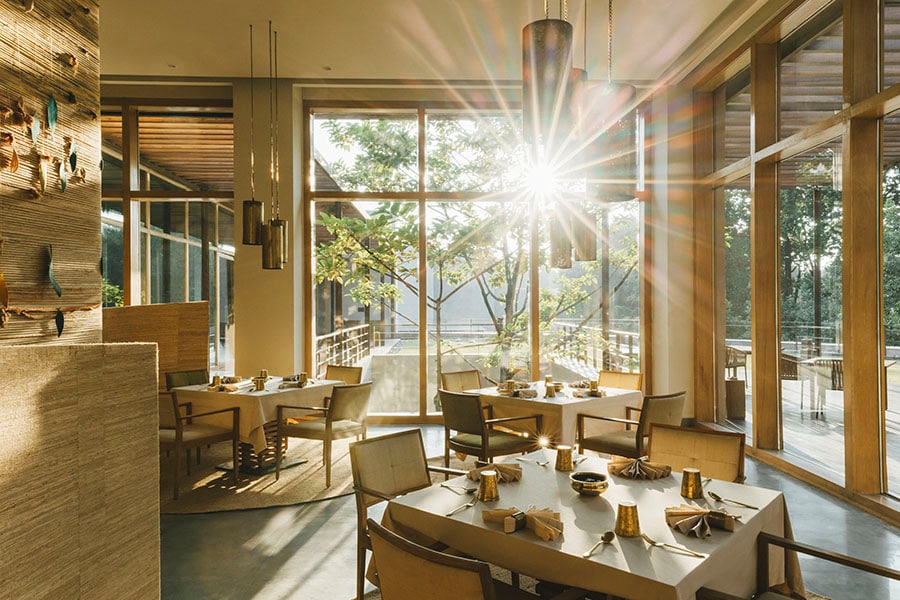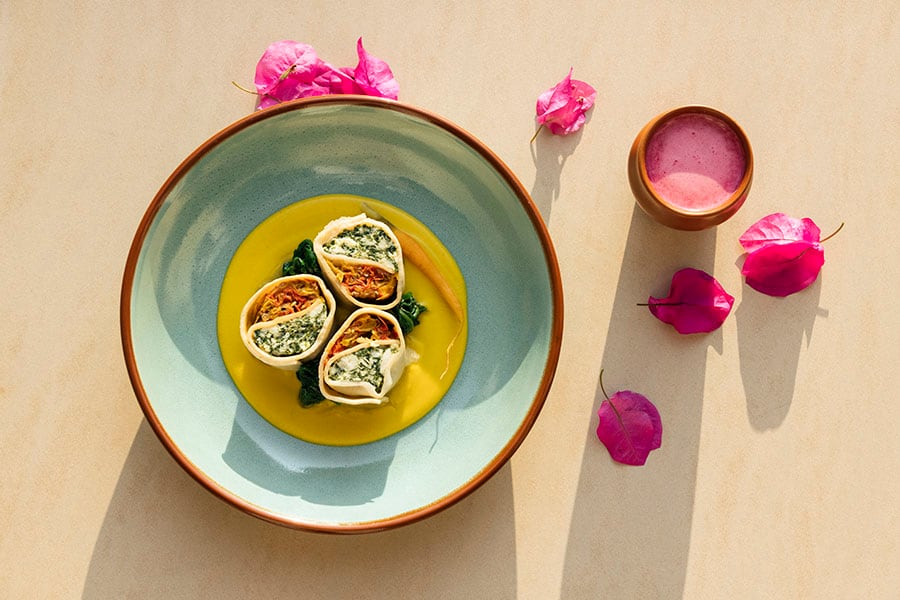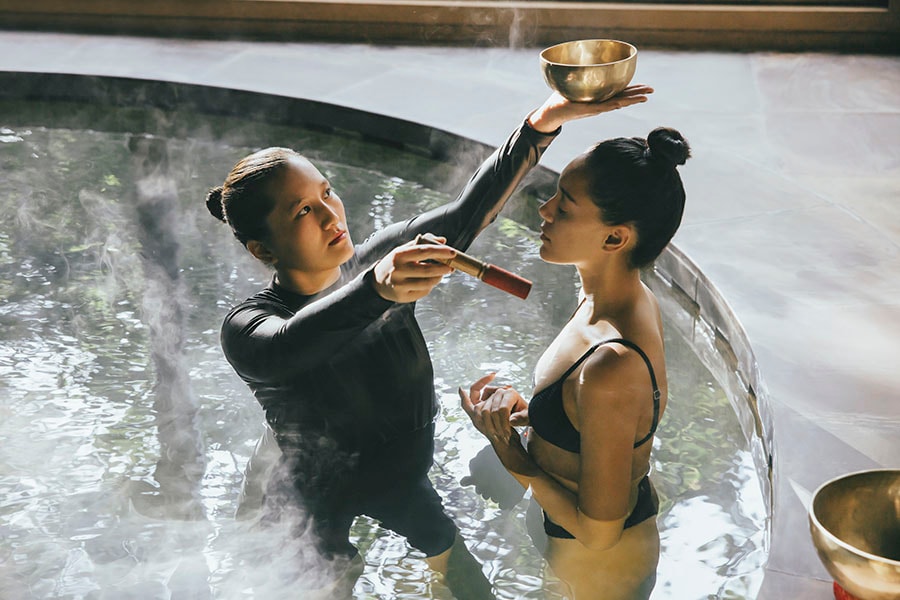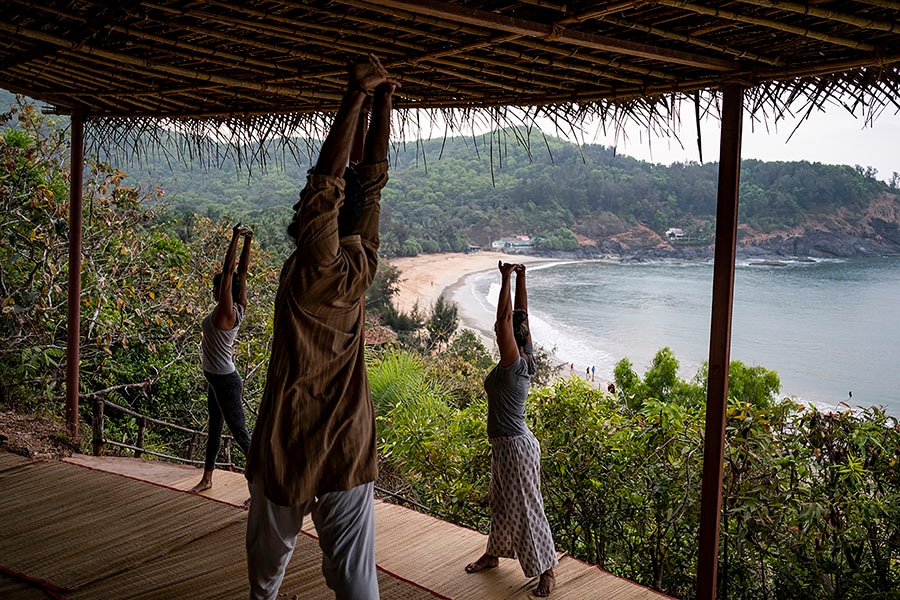
Luxury wellness vacations are tourism's hottest new trend
In the post-pandemic world, everyone from film stars to artists, corporate leaders to younger travellers, are booking wellness holidays seeking detox, personal growth or holistic cures. And retreats and hotels are stepping in offering everything from gourmet wellness meals to shaman healing and guided meditations
 Six Senses Vana, set in a 21 acre Sal forest reserve, is a hidden gem centred around Ayurvedic living
Image: Courtesy Six Senses Vana
Six Senses Vana, set in a 21 acre Sal forest reserve, is a hidden gem centred around Ayurvedic living
Image: Courtesy Six Senses Vana
It’s a luminous night in Dehradun, the lights of Mussoorie glitter from far above. Closer by, meditative notes of a flute recital celebrating the full moon fill the air, as we sit down to a gourmet—but mindful—meal by the pool.
Dainty origami cranes decorate the table, an ikebana arrangement stands at the side, there’s kintsugi crockery (where broken plates and bowls are mended with fine gold) and on the menu is makizushi with veggies grown in a garden onsite, fresh spinach ohitashi, fish teriyaki using local Himalayan catch, as well as an antioxidant-rich matcha pudding. It’s food that may have come from a top restaurant in Delhi or Mumbai. But hasn’t. Here, at Six Senses Vana, it is part of my wellness diet.
The retreat, in the heart of the Himalayas, approximates ascetic Indian forest ashrams of yore—albeit in a super luxe way. Yogic and ayurvedic therapies, detox, both physical and digital (no phone or screen allowed outside individual rooms), Sowa Rigpa (the ancient Tibetan medicinal system), meditation (including a musical ‘raag therapy’) are all available to consumers who’ve checked out of their harried city lives and checked into this break.
There’s energy cleansing via acupuncture or reflexology, a device tracks your sleep, there’s the latest ‘bio hack’, equipment to refresh tired calf muscles, and then there’s clean, sustainable gastronomy, no processed foods, rather ingredients that are organic, wholesome, and apt to balance the doshas (ayurvedic humours) should you like.
Ever since entrepreneur Veer Singh, son of Max Group founder Analjit Singh, with interests in organic farming, music, design and Buddhism, founded this sanctuary in 2014, Vana has been a hidden gem for all sorts of wellness seekers: From glamorous film stars to sought-after artists, corporate leaders and intrepid solo travellers like yours truly. Melinda Gates is said to have visited, as did artist Jatin Das, who during a burst of creativity, left behind some half-finished canvasses. There are high-fliers from the Middle East, or Germany, and Russia—all of whom have come repeatedly via word of mouth for the retreat never advertised itself.










